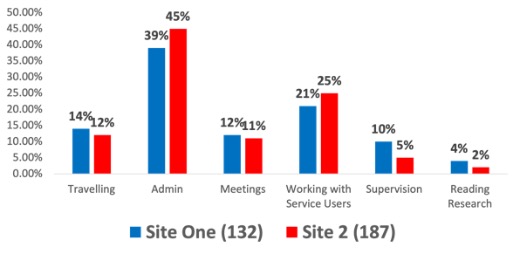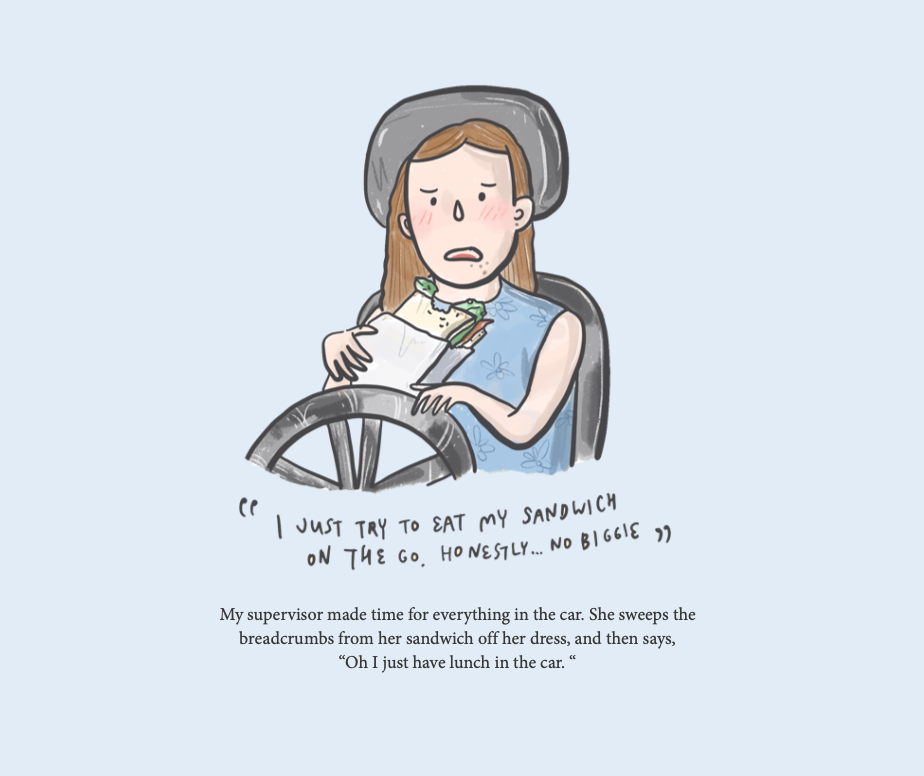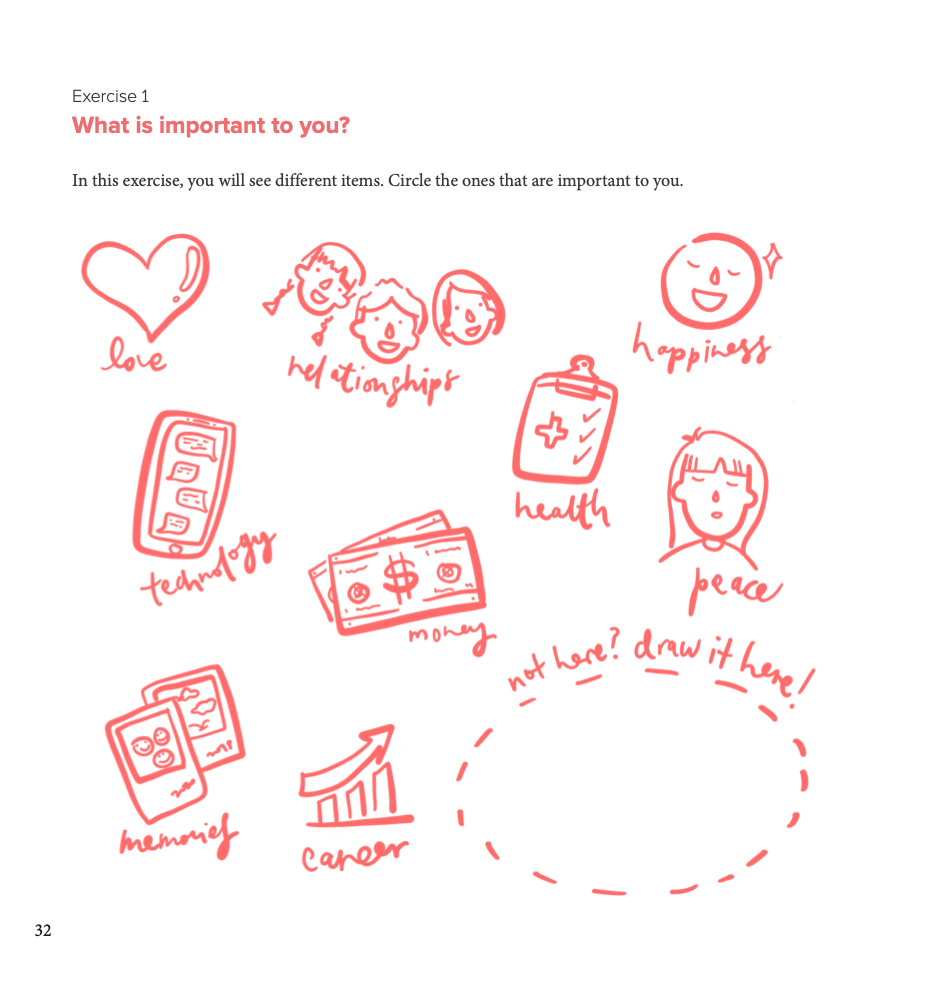Two years of doing social work
Two years after working full-time as a social worker, it ended. It wasn’t an active decision on my part.
It just happened.
My contract expired after two years. It was as simple as that.
There was no ‘Big Bang!’ Celebrating the end of my time as a social worker. It just ended.
In many ways, it symbolised how my career as a social worker ended with a whimper. At the end of my time as a social worker, it wasn’t really that I was burnt out, or sick and tired of it.
I could still do it, but there was no real passion or excitement to do it.

It had become another job.
Personally, I didn’t think that I could do any job like that, where I was clocking in and out, to get a paycheck, and go home.
That’s why I’m writing this article. Because if you’re looking to be a social worker, here’s some caveats, to prevent your own career from going out on a whimper.
You handle a lot of paperwork
I worked in both the U.K. and Singapore in social work settings. One similar complaint that always persisted was how much paperwork there was.
This doesn’t just refer to case notes, where you’re recording down what happened in the session, and perhaps even using it as a chance to reflect on what you did.

But this is also button clicking, paper pushing, ensuring that people get their money.
As a social worker, you regularly work with people from disadvantaged backgrounds. One thing I found administratively tiring was how many application forms I had to fill in for others, because they struggled to understand what was being asked of them. This can go a long way towards weighing down your enthusiasm for the job.
If you enjoy administrative work, you may enjoy the high amounts of time spent on administrative work.
But go in with open eyes, that most of your time might be spent on paperwork, rather than people.

Can you not care so much?
There was once when a crisis happened to a client just before Christmas. On Christmas Eve, instead of spending time with my family, I found myself with the client, in the hospital. Even after I went home, I found myself worrying about whether the client would be okay.
On Christmas, I found myself checking my work phone for messages to see if the client was okay.
I found myself tired, rather than recharged after the Christmas break.
Clearly, caring too much for the client affected me.
It would affect you, as you care for your clients. It is common for social workers to experience what Babette Rothschild calls ‘compassion fatigue’, a phenomenon ‘characterized by emotional and physical exhaustion leading to a diminished ability to empathize’.
As your family or loved ones share about their problems, you find yourself being unable to tune in as deeply.
The key is learning professional detachment, or how to detach with love.
One of the key lessons I learnt as a student social worker was how to intentionally draw boundaries between the client and yourself.
A large part of that is learning to ‘stay in your chair’, rather than putting yourself in the client’s chair, such that you begin to take on his pains and suffering. That can be done with mindfulness techniques such as deep breaths, as you hear a client’s story.
The key thing to note as you decide whether to be a social worker is realising that part of the professional training will require you to be detached, and aloof, so that you can care sustainably.
What if you don’t have a work-life balance?
I’ll be honest. Work-life balance in social work, is very difficult.
There are certain types of social work that lends itself to that, but most types of social work deal with crises.

You will find yourself hauled out on weekends to deal with crises, taking calls after hours, or going back to work whilst on leave to clear administrative work.
You need to ask yourself what phase of life you’re in, and whether that’s okay with you.
How much do you like change?
One draw of social work is true.
You never know what the next day holds. There’s no real ‘fixed day’ in social work.
By far the most common day would look like:
| Time | Agenda |
|---|---|
| 0900 – 1000 | Come in, get coffee, have checkin meetings with my supervisor |
| 1000 – 1100 | Write case notes, upload case notes |
| 1100 – 1200 | Go out for home visits |
| 1200 – 1300 | Lunch |
| 1300 – 1400 | Home visits |
| 1400 – 1500 | Work meetings on things such as programmes we are piloting |
| 1500 – 1600 | Handle emails, callbacks |
But the nature of crises mean that you may never know when the next demand for you to rush out of the office to meet your client or a partner is.
This means that you need to be very comfortable with change.
How comfortable are you with that?
Social change doesn’t have to come through social work
A typical social work advertisement sees a social worker sitting with a client, listening attentively, leaning in, and talking about the change you can make.
If you want to make change, it doesn’t only come through social work. Even bankers make change by lending money to social enterprises.
It doesn’t have to be profit or purpose. It can be both.
When I left social work, I thought that was the end of my career in social change.
But even as a writer now, I find myself impacting more people through my writing, than I ever could in a 1 to 1 setting in direct social work.
Don’t make the mistake of thinking that you need to be directly counselling a client to make social change. Social change can come through many other ways.
The key is to recognise where your strengths lie, so that you can contribute best.
How many problems do you like listening to?
When I explained to people my job as a social worker, I sometimes liked to joke,
I listen to problems all day, for a living.
It’s somewhat true. As a fulltime social worker, you will be listening to problems from clients, seeing clients, at least 2 or 3 times a day.
Some more productive social workers can fit in 5 or 6 a day.
That may be 6 hours of problems you need to listen to, and solve.
Are you okay with that?
Very often, when we first show an interest in social work, we may draw reference to how we enjoyed listening to our friends’ problems.
But bear in mind that’s once every few days.
Social work is professional problem-listening, everyday.
So, should you be a social worker?

Recently, I was running in the rain, trying to be on time to meet a potential client for the business I ran. As the drizzle ran down my face, I found myself laughing with joy.
It was something I hadn’t experienced for a long time.
For a long time, in and after my time as a social worker, I found myself seeing the world through tinted sunglasses. Everything was serious, sombre, and morbid. After all, when you regularly see abuse, you see the worst of humanity.
And you find it hard to see the good in humanity again.
I think that’s the most important thing to be mindful of.
If you’re naturally optimistic, and find yourself seldom weighed down by people’s problems (even when its 5 hours a day), try it.
Otherwise, there’s no loss in not being a social worker. There are many other options out there.
Great website. I’ve been having second thoughts about studying social work and was googling when I came across your website. And it was such a pleasant surprise to realise that you’re from Singapore as well! Wish I had found your website before I had applied to study social work. 🙂 Nevertheless, it was fun reading your posts.
Thanks for sharing, hope you have a great time too!